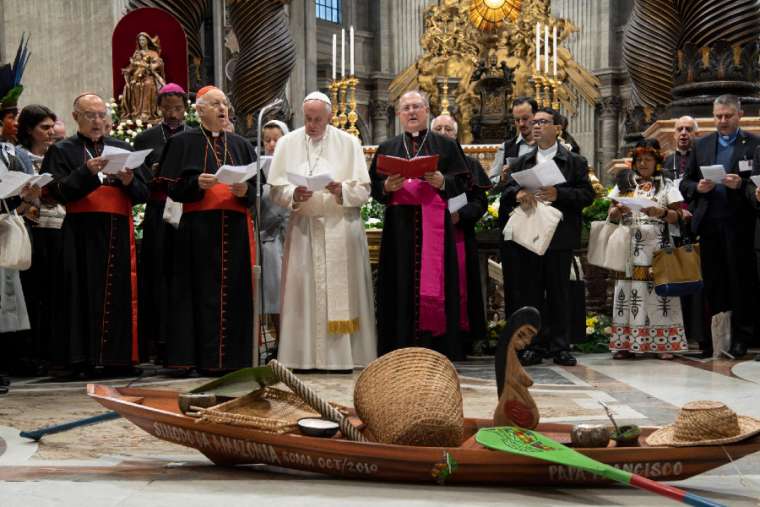Inculturation is a 'necessary process' in the Amazon
Pope Francis has highlighted the need for spiritual inculturation in the Amazon region, and praised indigenous expressions of religiosity, while pointing to the Eucharist as the central component of Christian spirituality.
Feb 26, 2020

VATICAN CITY: Pope Francis has highlighted the need for spiritual inculturation in the Amazon region, and praised indigenous expressions of religiosity, while pointing to the Eucharist as the central component of Christian spirituality.
In an apostolic exhortation released Feb. 12 as a follow-up to last year’s Synod on the Amazon, the pope said the Church should adapt and adopt the identity of the Amazon region in an authentically Christian way.
In Querida Amazonia, released on Wednesday, the pope offered a sweeping view of the region and called for the Church to engage with and defend its peoples at the social, cultural, environmental, and spiritual levels.
“As she perseveres in the preaching of the kerygma, the Church also needs to grow in the Amazon region. In doing so, she constantly reshapes her identity through listening and dialogue with the people, the realities and the history of the lands in which she finds herself,” Francis said.
The pope said that true inculturation is “a necessary process” that “rejects nothing of the goodness that already exists in Amazonian cultures, but brings it to fulfilment in the light of the Gospel.”
Citing the teachings of St. John Paul II, Francis said that the Church never denies the “autonomy of culture.”
“On the contrary, she has the greatest respect for it, since culture is not only an object of redemption and elevation but can also play a role of mediation and cooperation.”
Francis also used the document to revisit and respond to the debate that took place at the 2019 synod on the role and suitability of adopting symbols of indigenous spirituality into the Church.
During the Synod on the Amazon, held on Oct. 6-27 last year, a particular point of controversy was the presence of carved images of a naked pregnant woman, often identified as the indigenous religious symbol “Pachamama.”
The figures were displayed at a number of side-events held over the course of the synod in Rome. While some observers insisted they were representative of life, fertility, and motherhood, others, including some former curial cardinals, denounced the use and presence of the figures, warning that they could be interpreted as a form of pagan idolatry.
Debate about the meaning and suitability of the Pachamama image boiled over when, on Oct. 21, a video was uploaded to YouTube showing a number of the statues being removed from a display in the church of Santa Maria in Traspontina and thrown into the Tiber. An Austrian man subsequently claimed responsibility for the act.
During the closing session of the synod, Francis made an apology for the incident, saying that “As bishop of this diocese, I ask forgiveness from those who have been offended by this gesture.” The pope went on to say that they had been displayed in the church “without idolatrous intentions.”
In the exhortation, Francis appeared to address the issue, but did not reference the Pachamama image specifically.
“It is possible to take up an indigenous symbol in some way, without necessarily considering it as idolatry,” Francis wrote in Querida Amazonia. “A myth charged with spiritual meaning can be used to advantage and not always considered a pagan error.”
The pope said it is important that the Church not “be quick to describe as superstition or paganism certain religious practices that arise spontaneously from the life of peoples.”--CNA







Total Comments:0